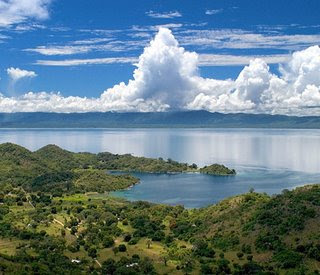Myths and realities about Africa
Friday, November 30, 2007
- Myth: Africa is just one huge desert or rain-forest country
Reality: Africa is a huge and diverse continent with 53 different countries. Africa is divided into several regions which are marked by striking climate variations. The continent features highlands on both the East and West coasts and plains in the middle. Africa has two deserts — the Sahara in the north and the Kalahari in the south-western region of the continent. Otherwise in most sub-saharan countries the vegetation is tropical savanna which is characterized by grasslands with drought-resistant trees. For whatever reason, some people would like treat Africa as one single country!
- Myth: Africa is a continent ridden with war
Reality: Africa consists of 53 countries. Of these, there is war (as of today 30th November, 2007), in countries such as some regions of Sudan, part of Chad, Somalia, part of the Democratic Republic of Congo, part of Ethiopia, Eritrea, northern Uganda. Therefore to make a blanket statement that all of Africa is at war is very fallacious since there are so many other very peaceful countries in Africa - Myth: Africa is a continent ridden with disease
Reality: There might be diseases like Malaria, HIV/AIDS etc but believe you me Africa is not just about disease. Come to Africa, you will find very healthy people as well as sickly people. However, the main challenge is for African governments to give equitable access to health facilities to all their citizens: the poor and the rich, the literate and the illiterate, the rural and urban dwellers, etc And of course, Africa faces the major challenge of HIV/AIDS which apparently is not only hitting Africa hard but indeed the rest of the world. - Myth: Africa is a continent ridden with poverty
Reality: As in other continents, there are people of different incomes or should I say social classes. On one end there is a group of people who are "stinking" rich while on the other extreme end are very poor people which unfortunately constitute a significant proportion of the African population. It is therefore a challenge to African governments to close this big gap through improved infrastructure, job creation, food security mechanisms, improved education systems, good governance etc - Myth: Africans are happy to be recipients of food aid, monetary aid etc from other continents
Reality: Africans are never happy to be in this state. In fact we would desire to stand on our own as a proud people with direct control of our own future and destiny. But look at our sad history of slavery, colonization and partitioning of Africa, being forced to participate in WWI and WWII, being one of the battlefields in the Cold War, victims of Structural Adjustment Policies (SAPS) etc. Surely without these sad events, we could have not been in the state we are in. But we would rather not dwell in the past instead we would like to live for the future. That is why there is a renaissance now in Africa and we have realized the importance of African solutions to African problems. Many African countries have embraced democracy, people can vote, many people are getting educated, more infrastructure is built, etc. Surely the future of Africa is bright! With just a little bit of hard work and dedication, we will definitely do it. - Myth: Africa is a continent ridden with hunger
Reality: Come to Africa and be assured that you will not starve to death. Much as there are some areas in Africa that are constantly hit by drought it is illogical to say that in the whole of Africa people are starving. A major challenge is to provide food to vulnerable groups such as war refugees, HIV/AIDS orphans, people living in drought prone areas, introducing water harvesting schemes, improving access to farm inputs etc - Myth: Africa does not have a rich cultural history
Reality: Africa boasts of different tribes with different languages and very diverse cultures and traditions. Despite this diversity Africans know that they are one people through the 'African Spirit'. And let us not forget a historical fact that humankind originated from Africa. - Myth: Africans live in huts
Reality: Come to Africa and see Africans live in modern houses although others still live in traditional houses (not necessarily huts). Imagine I am writing this post from my place (with electricity, piped water, internet access, etc)












